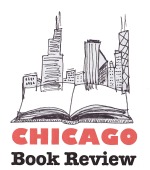 This year has gone by so quicky. Here we are coming up on Thanksgiving weekend, and then it’s Chanukah, and in just a month it will be Christmas, and then Kwanzaa, and then New Year’s …
This year has gone by so quicky. Here we are coming up on Thanksgiving weekend, and then it’s Chanukah, and in just a month it will be Christmas, and then Kwanzaa, and then New Year’s …
phew!
Between now and then, a lot of people will be doing a lot of shopping, and we hope that a lot of that shopping means a lot of book buying. Whether that means you take advantage of this weekend’s Small Business Saturday, during which a number of local bookstores will be hosting special events, or whether you’ll be buying books from big-box bookstores, or whether you’ll be doing your shopping online, there is no shortage of new books to explore for everyone on your list (and, of course, to add to y our own wishlist!). Indeed, by some measures, more than 300,000 new titles will be published before the end of 2015 in the United States. That’s a lot of books.
our own wishlist!). Indeed, by some measures, more than 300,000 new titles will be published before the end of 2015 in the United States. That’s a lot of books.
Among those hundreds of thousands of new books are titles written by local authors, titles published by local publishers, and titles that tackle local subject matter. Here at Chicago Book Review, we focus on those very titles, shining a light on some titles that might otherwise go undiscovered. We’ve reviewed a bunch of them so far this year, some we’ve loved, some we’ve … well … not loved. We’ve also shared info about forthcoming titles in our Summer 2015 Preview and our Fall 2015 Preview.
Any (or even all) of these books could well make for great reading for the bibliophiles on your list. And, so, to that end, we offer our third annual Holiday Reading Guide, a collection of fiction and nonfiction titles that will help you ReadLocal deep into winter.
So, have fun shopping. Enjoy your holidays. And enjoy a good book. Share one with someone you love. Because we kind of need some extra love these days considering all that’s going on in Chicago and around the world.
Happy Holidays!



A Big Enough Lie by Eric Bennett
Chicago, The Windigo City by Mark Everett Stone
A Desperate Fortune by Susanna Kearsley
The Far End of Happy by Kathryn Craft
Gideon’s Confession by Joseph G. Peterson
Haymaker by Adam Schuitema
If You’re Not the One by Jemma Forte
The Lost Journals of Sylvia Plath by Kimberly Knutsen
The Orphan Sky by Ella Leya
Pretty Baby by Mary Kubica
Principles of Navigation by Lynn Sloan
An Untimely Frost (or, The Authoress) by Ted Morrissey
Weeping With an Ancient God by Ted Morrissey
Whiskey & Charlie by Annabel Smith
Mystery/Thriller
Death at Chinatown: An Emily Cabot Mystery by Frances McNamara
Death at Gills Rock: A Dave Cubiak Door County Mystery by Patricia Skalka
Honor Above All by J. Bard-Collins
Scroll Back: Travel in Time … to Seek Eternal Life by Jay Stamatis and Steven P. Stamatis
State of Horror: Illinois Jerry E. Benns, Editor
A Winsome Murder by James Devita
Stories/Anthologies/Collections
Music for Wartime by Rebecca Makkai
Remedies for Hunger by Anara Guard
Twilight of the Idiots by Joseph G. Peterson
Young Adult
Alchemy’s Daughter by Mary A. Osborne
Panther in the Hive by Olivia A. Cole
POETRY

Extinguished & Extinct: An Anthology of Things That No Longer Exist John McCarthy, Editor
Hearsay by Christopher Ankney
The Waxen Poor by J. D. Schraffenberger



Gardening
Weeds of North America by Richard Dickinson and France Royer
History
Midwest Maize: How Corn Shaped the U.S. Heartland by Cynthia Clampitt
Women of Steel and Stone: 22 Inspirational Architects, Engineers, and Landscape Designers by Anna M. Lewis
A Triumph of Genius: Edwin Land, Polaroid, and the Kodak Patent War by Ronald K. Fierstein
Blood Runs Green: The Murder That Transfixed Gilded-Age Chicago by Gillian O’Brien
The Neighborhood Outfit: Organized Crime in Chicago Heights by Louis Corsino
Memoir
There’s a Hamster in the Dashboard: A Life in Pets by David W. Berner
Pieces of My Mother: A Memoir by Melissa Cistaro
Music History
A City Called Heaven: Chicago and the Birth of Gospel Music by Robert M. Marovich
Self-Improvement
The Creative Activist: Make the World Better, One Person, One Action at a Time by Rae Luskin




